The Catalan independence parody with its own president
- Published
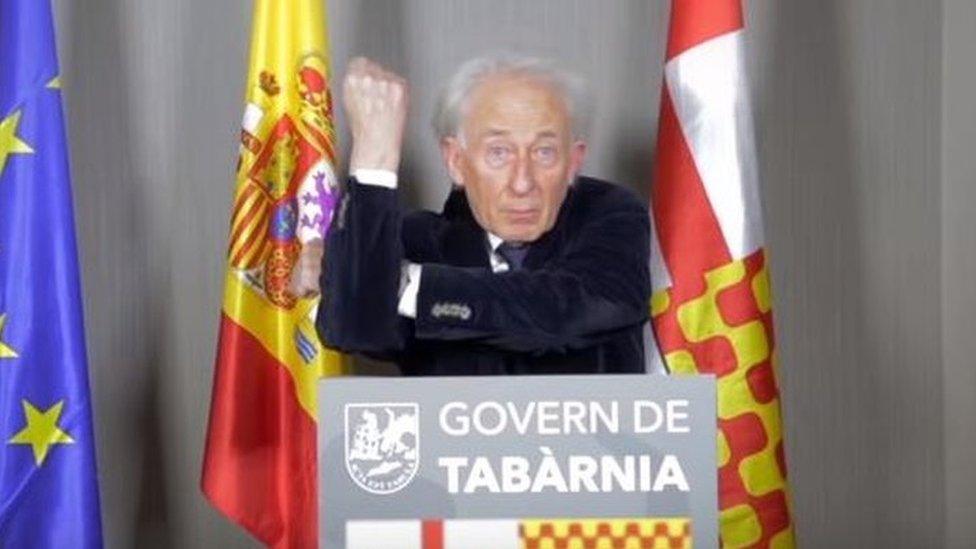
Actor Albert Boadella appears as the pretend leader of Tabarnia
It has a map, a flag and now its own "president", but even its most passionate cheerleaders happily admit that Tabarnia doesn't really exist.
Tabarnia is an imaginary region of Catalonia created by Spanish unionists as an online parody of the Catalonian independence movement.
So popular has it become that activists have now taken the joke one step further by unveiling theatre actor Albert Boadella as the pretend "president" of the fictional region, at a packed press conference in Barcelona.
Boadella was sworn in via a video link from his "exile" in Madrid, an undisguised dig at Catalonia's deposed former leader Carles Puigdemont, who has spent the last few months abroad to avoid charges of sedition, rebellion and misappropriation of funds at home.
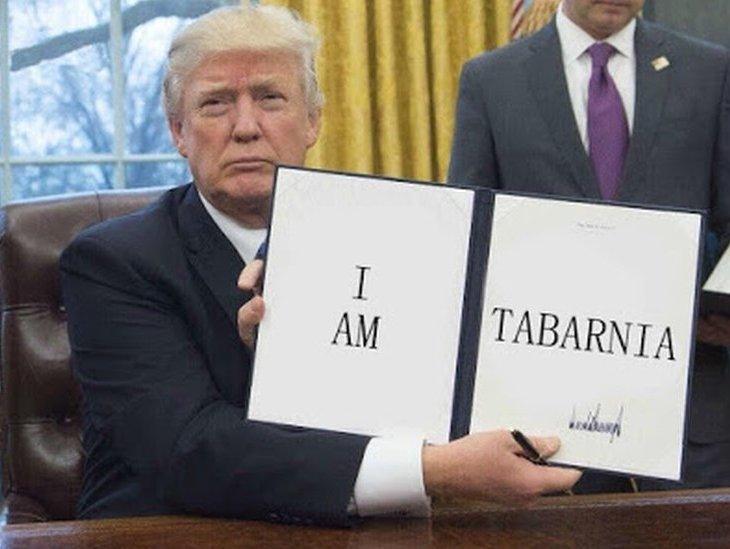
Tabarnia started as an online joke
So-called Tabarnians seek to ridicule the ambitions of Catalan separatists by campaigning for Tabarnia to secede from Catalonia and remain part of Spain.
In his presidential address - which has had more than 300,000 views on YouTube, external - Boadella accused the supporters of Catalan independence of trying to divide the region, Spain and Europe.
"I am a clown, but next to you I am a modest apprentice," the actor said.
What is Tabarnia?
Tabarnia's proponents present it as an "industrial, prosperous and bilingual Catalonia", opposed to Catalan separatism. Its imaginary territory is located on a stretch of land uniting several very real municipalities in Tarragona and Barcelona.
Though Tabarnia emerged back in 2012, it only became a household name recently.
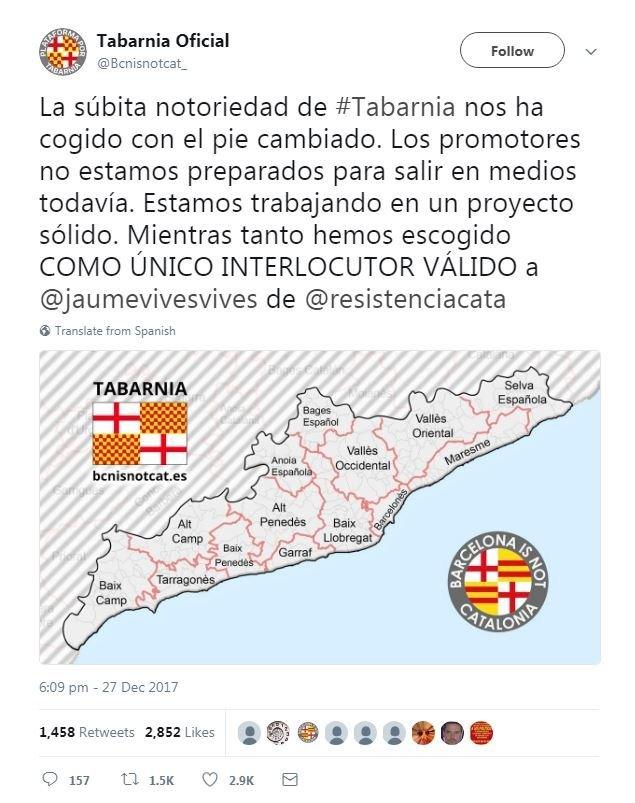
Tabarnia is an imaginary region located on very real territory
It became a hit on social media five days after the December regional election called by Madrid in an attempt to replace the Catalan separatist government.
The vote resulted in the pro-union Ciudadanos party (Citizens) coming out on top, but pro-independence parties won a majority.
Going viral
People who classed themselves as Tabarnians responded with indignation under the slogan "Barcelona is not Catalonia", mocking the calls "Catalonia is not Spain" used by Catalan separatists.
Tabarnia's official Twitter account, external has gained almost 40,000 followers since it was set up in September 2015. And the region's name went viral on social media over Christmas with 648,000 mentions on Twitter.
According to Tabarnia's spokesman Jaume Vives, about 100 people are working on the project and "hundreds of thousands" support it.
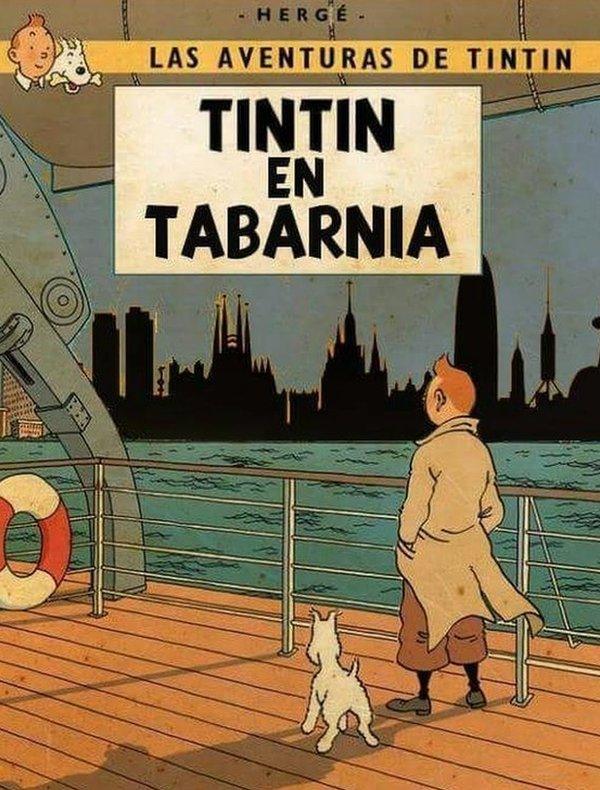
The imaginary region has inspired many social media memes
"Our goal is to fight against this structure in order to show the damage to which the delirium of the current bad government can lead us," he said, external referring to Catalan pro-independence politicians, in an interview with the Barcelona-based La Vanguardia newspaper.
"The reason for Tabarnia's existence is for them to see their own reflection in their own absurdity. If it does not work, we will go as far as independence supporters want to go," he added.
Tabarnians' calls for separation from Catalonia have roots in the results of the recent election which showed that Ciudadanos received the most votes in Barcelona and Tarragona.
Shortly after the vote, Tabarnia's representatives sent a petition to the Spanish parliament, external demanding the right to "be a new autonomous region within Spain and independent from Catalonia". To date it has received more than 275,000 signatures.
"None of the separatist members of the Catalan parliament board was born in Tabarnia," its Twitter account says, external.
Public perception
Tabarnia has generated a mix of reactions over the past month.
An MP from the pro-Catalan independence ERC party (Republican Left of Catalonia), Gabriel Rufian, tweeted about "Tabarnia, one, great and free", external - a sarcastic reference to a famous slogan from the era of General Franco, the Spanish military dictator.
The leader of the left-wing Podemos party Pablo Iglesias dubbed Tabarnia a "circus".
"The unfolding of the war of flags helps neither Spaniards nor Catalans," he told Telecinco TV, external.
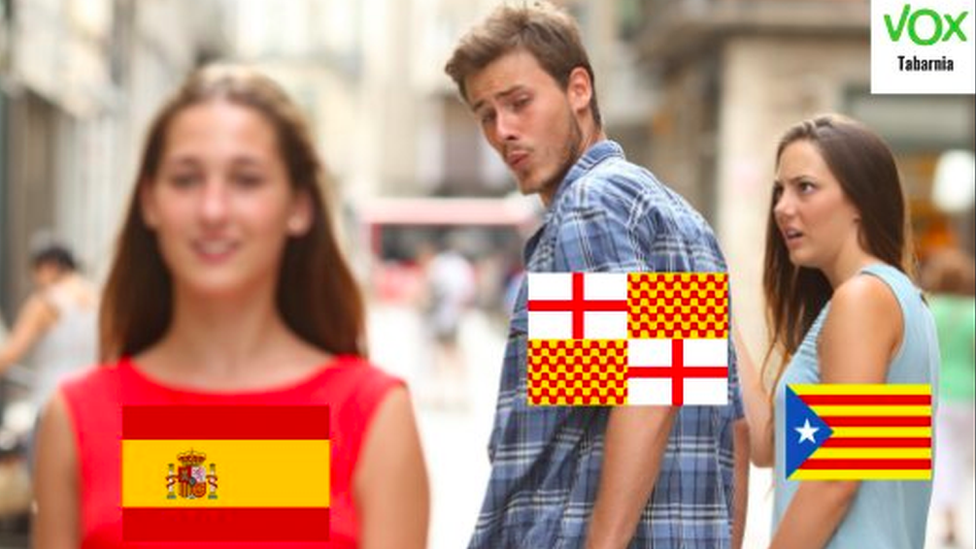
Catalan independence campaigners are not fans of Tabarnia
But the conservative Spanish newspaper La Razon said it would not treat Tabarnia as a "joke".
"The movement is growing and each time increasingly more Catalans show interest in the possibility of a change, which would have been unthinkable without the lunacy of separatism that has damaged Catalonia so badly," it said., external
The paper's chief editor Fransisco Marhuenda described the phenomenon as an "ingenious" idea.
"Tabarnia is a very appealing and interesting idea. It is a modern Catalonia, it is a Catalonia of progress," he wrote, external.
Blog by Tatiana Kyryliuk, BBC Monitoring
Do you have a story for BBC Trending? Email us, external.
You can follow BBC Trending on Twitter @BBCtrending, external, and find us on Facebook, external. All our stories are at bbc.com/trending.
- Published4 December 2017
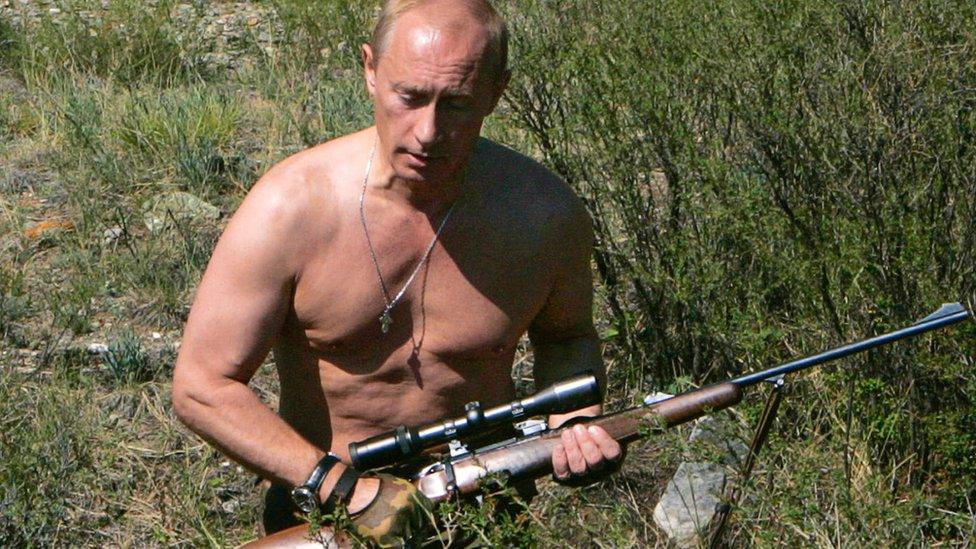
- Published25 March 2024

- Published12 September 2017
